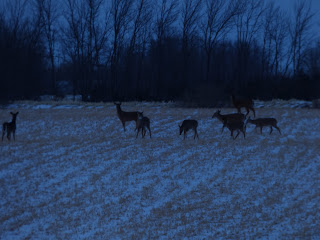Seeking Ecological Wholeness, and the Way Forward - - William P. Mueller
Friday, December 30, 2016
faith and perspectives on climate change
A wonderful article from the Yale Program on Climate Change Communication is at: http://climatecommunication.yale.edu/publications/faith-morality-environment/
Thursday, December 22, 2016
rebuilding the core of activism
Are you feeling exhausted after a divisive year? Here are some ideas that may help.
http://www.joannamacy.net/engaged-buddhism/spiritual-practices-for-activists.html
Wednesday, December 7, 2016
the origins of deep ecology
Arne Naess, Norwegian philosopher, is the originator of "deep ecology", and the paper linked here is foundational to this philosophy: http://wildsreprisal.com/PDF's/Cascadia%20Rising/The%20shallow%20and%20the%20deep,%20long-range%20ecology%20movement.pdf
Naess, A. 1973. The shallow and the deep. long-range ecology movement. A summary. Inquiry 16: 95-100.

Naess, A. 1973. The shallow and the deep. long-range ecology movement. A summary. Inquiry 16: 95-100.
Sunday, November 20, 2016
ethics, faith, and environment
The interface between ethics, religious faiths, and movement on environmental-ethical issues has become enriched by the work of many scholars and participants.
A good place to start learning about these interactions is the Forum on Religion and Ecology at Yale:
http://fore.yale.edu/
Here are a variety of other resources, with more to come in additional posts, and with links back to older, previous posts on this blog:
From a previous post:
Ethical interaction with the natural world
http://bioscience.oxfordjournals.org/content/56/2/144.full
From the abstract:
"I argue that both anthropocentric and biocentric approaches create a false dichotomy between humans and nature and are not helpful to modern wildlife conservation, which aims to balance the needs of people with the conservation of nature."
An exceptionally fine book, published a few years ago, Moral Ground - Ethical Action for a Planet in Peril, edited by Kathleen Dean Moore and Michael P. Nelson, details "the testimony of over 80 visionaries — theologians and religious leaders, scientists, elected officials, business leaders, naturists, activists, and writers — to present a diverse and compelling call to honor our individual and collective moral responsibilities to our planet." The contributors consider the ethics of "doing the right thing for our planet, its animals, its plants, and its people." An amazing collection of chapters from this long list of activists and scholars - it is inspiring and idea-generating from start to finish.
More links:
http://www.faithecology.net.au/ethics_faith_consumption
https://www.scu.edu/ethics/focus-areas/more/environmental-ethics/resources/a-short-course-in-environmental-ethics/lesson-ten/
http://www.sciencedirect.com/science/article/pii/S0160791X14000177
Saturday, November 19, 2016
a different perspective on the natural world
Fr. Richard Rohr has a way of getting to the heart of the matter: https://cac.org/nature-week-2-summary-2016-11-19/
"Nature itself is the primary Bible. As Paul says in Romans 1:20, “What can be known about God is perfectly plain, for God has made it plain. Ever since God created the world, God’s everlasting power and deity is there for the mind to see in all the things that God has created.”
"Nature itself is the primary Bible. As Paul says in Romans 1:20, “What can be known about God is perfectly plain, for God has made it plain. Ever since God created the world, God’s everlasting power and deity is there for the mind to see in all the things that God has created.”
Thursday, November 17, 2016
The Network of Spiritual Progressives
"Instead of a
bottom-line based on money and power, we need a new bottom-line that
judges corporations, governments, schools, public institutions, and
social practices as efficient, rational and productive not only to the
extent they maximize money and power, but to the extent they maximize
love and caring, ethical and ecological sensitivity,
and our capacity to respond with awe and wonder at the grandeur of
creation."
- Rabbi Michael Lerner
Learn about the Network of Spiritual Progressives:- Rabbi Michael Lerner
http://spiritualprogressives.org/newsite/
Wednesday, November 16, 2016
the nexus of democracy and its response to climate change
"Can democracy in crisis deal with the climate crisis?"
Great writings from the contributors at the Center for Humans and Nature:
http://www.humansandnature.org/can-democracy-in-crisis-deal-with-the-climate-crisis
Sunday, October 16, 2016
Earth stewardship: http://www.esa.org/esa/science/earth-stewardship/
"Earth stewardship involves shaping trajectories of social-ecological change at local-to-global scales to enhance ecosystem resilience and human well-being. Over the next decade or two, society has a window of opportunity to radically redefine our relationship with the planet to reduce risks of dangerous global changes that could otherwise seriously degrade Earth’s life-support systems."
"Earth stewardship involves shaping trajectories of social-ecological change at local-to-global scales to enhance ecosystem resilience and human well-being. Over the next decade or two, society has a window of opportunity to radically redefine our relationship with the planet to reduce risks of dangerous global changes that could otherwise seriously degrade Earth’s life-support systems."
Friday, October 7, 2016
it's time to re-read this "Thinking Like a Mountain"
Always worth coming back to this essay: http://www.rainforestinfo.org.au/deep-eco/Anthropo.htm
BEYOND ANTHROPOCENTRISM
by John Seed
from THINKING LIKE A MOUNTAIN - TOWARDS A COUNCIL OF ALL BEINGS by John Seed, Joanna Macy, Arne Naess & Pat Fleming, New Society Publishers, Philadelphia, 1988
BEYOND ANTHROPOCENTRISM
by John Seed
from THINKING LIKE A MOUNTAIN - TOWARDS A COUNCIL OF ALL BEINGS by John Seed, Joanna Macy, Arne Naess & Pat Fleming, New Society Publishers, Philadelphia, 1988
Wednesday, September 7, 2016
Our dependence on nature
Go to this link: http://www.conservation.org/pages/nature.aspx to learn more about how we depend on nature.
Then read about the concept of "ecosystem services" - how nature works for us: http://www.teebweb.org/resources/ecosystem-services/
Then read about the concept of "ecosystem services" - how nature works for us: http://www.teebweb.org/resources/ecosystem-services/
 |
| Ph. by J. Eastland, Wikim. Commons |
Subscribe to:
Posts (Atom)




